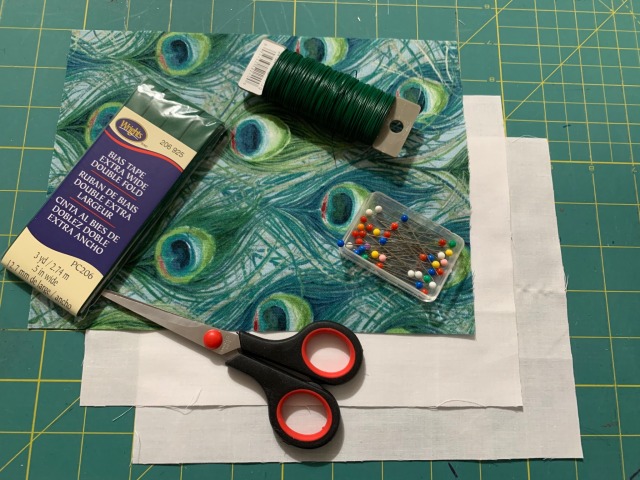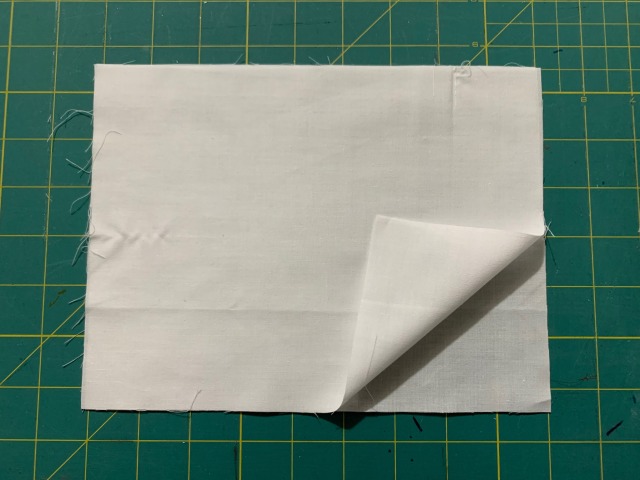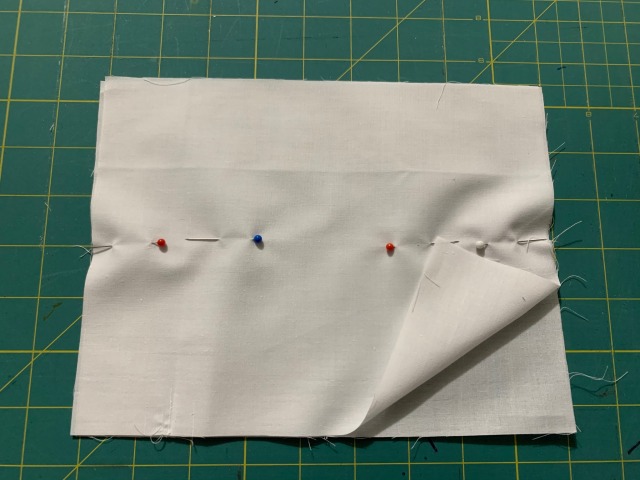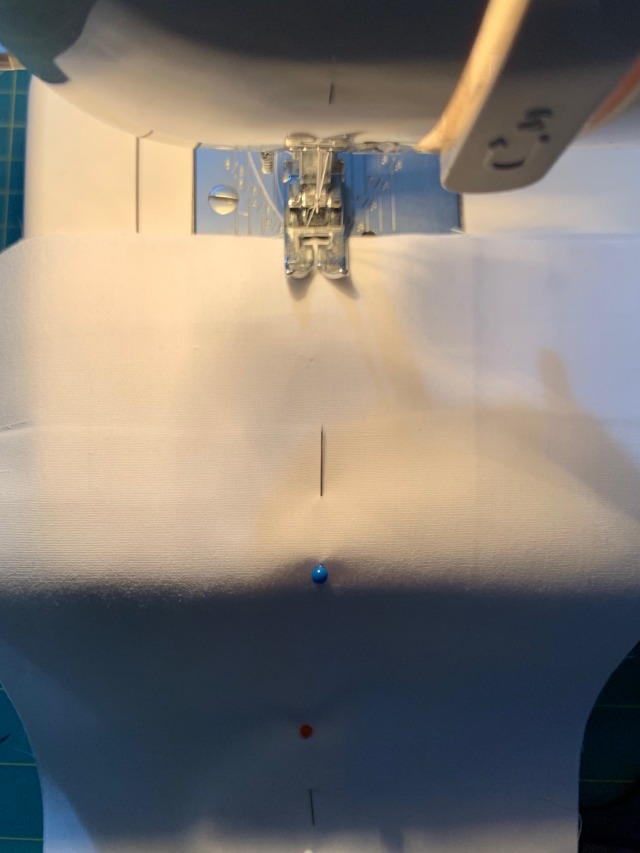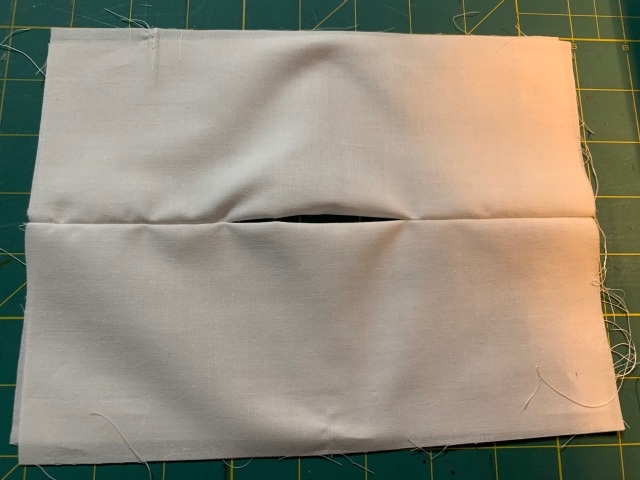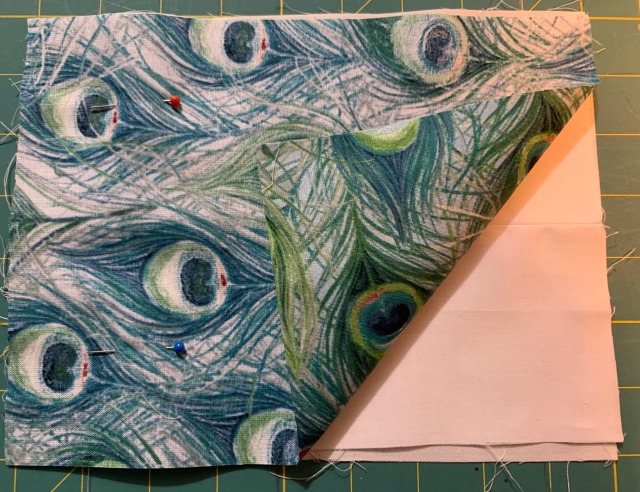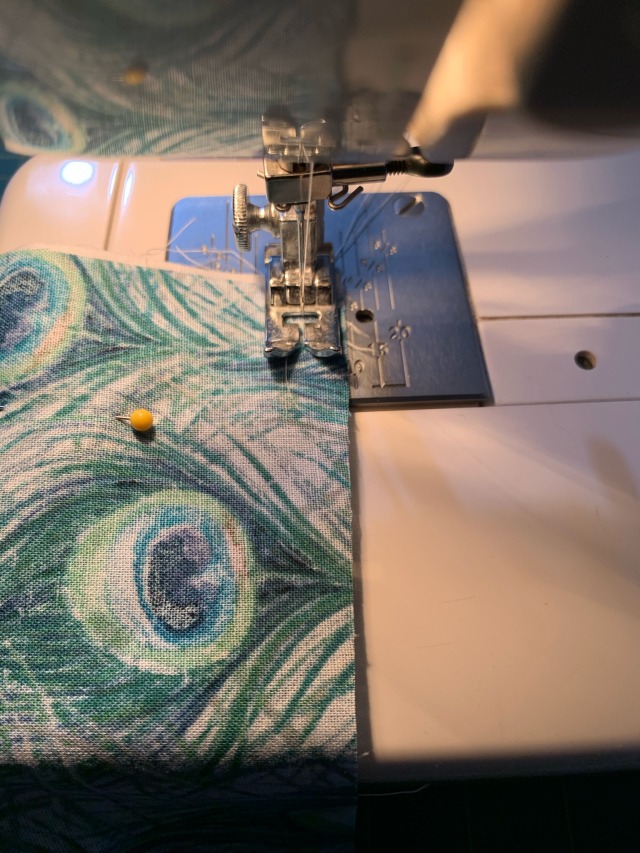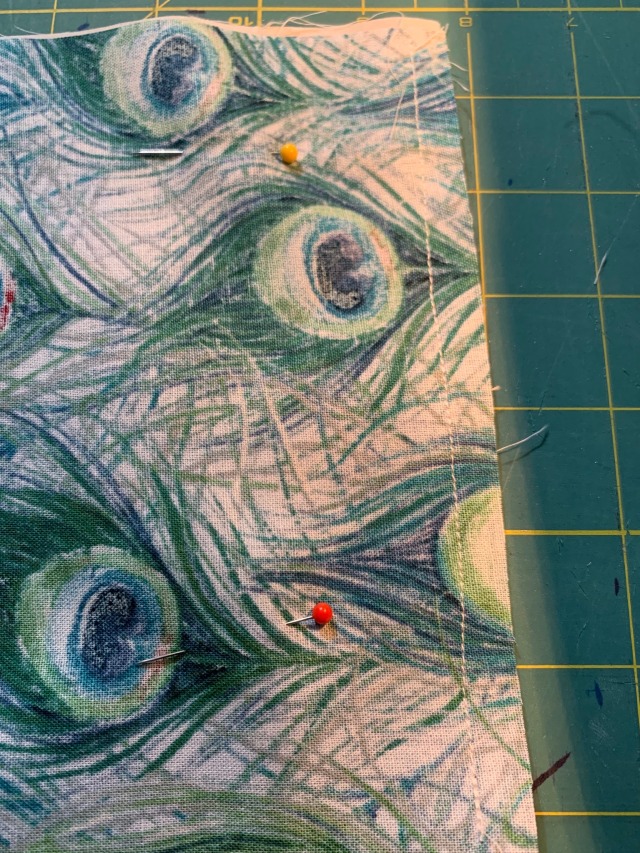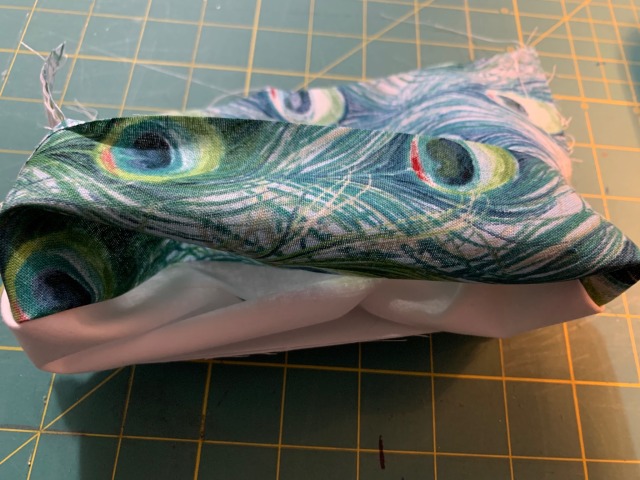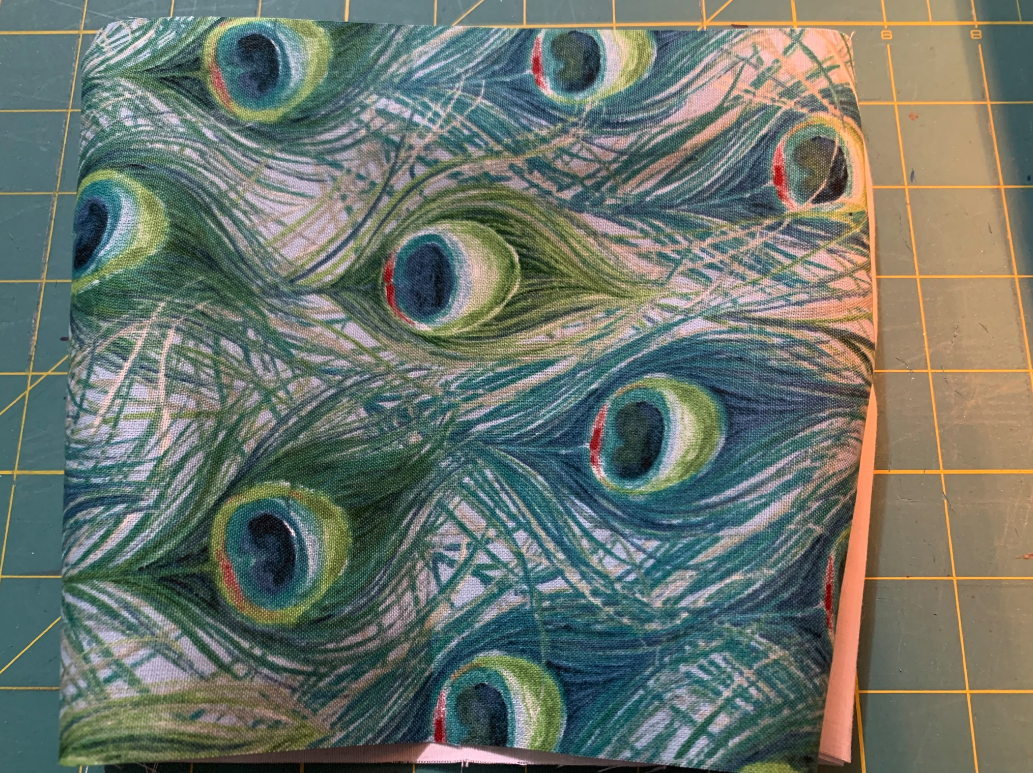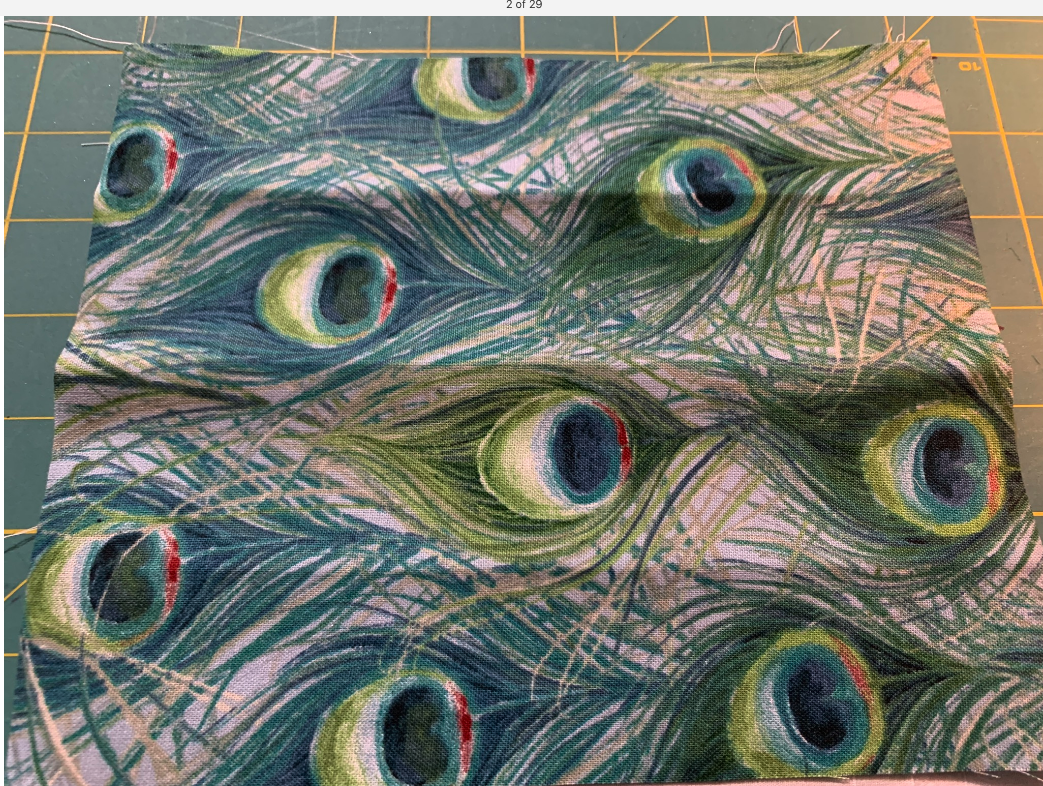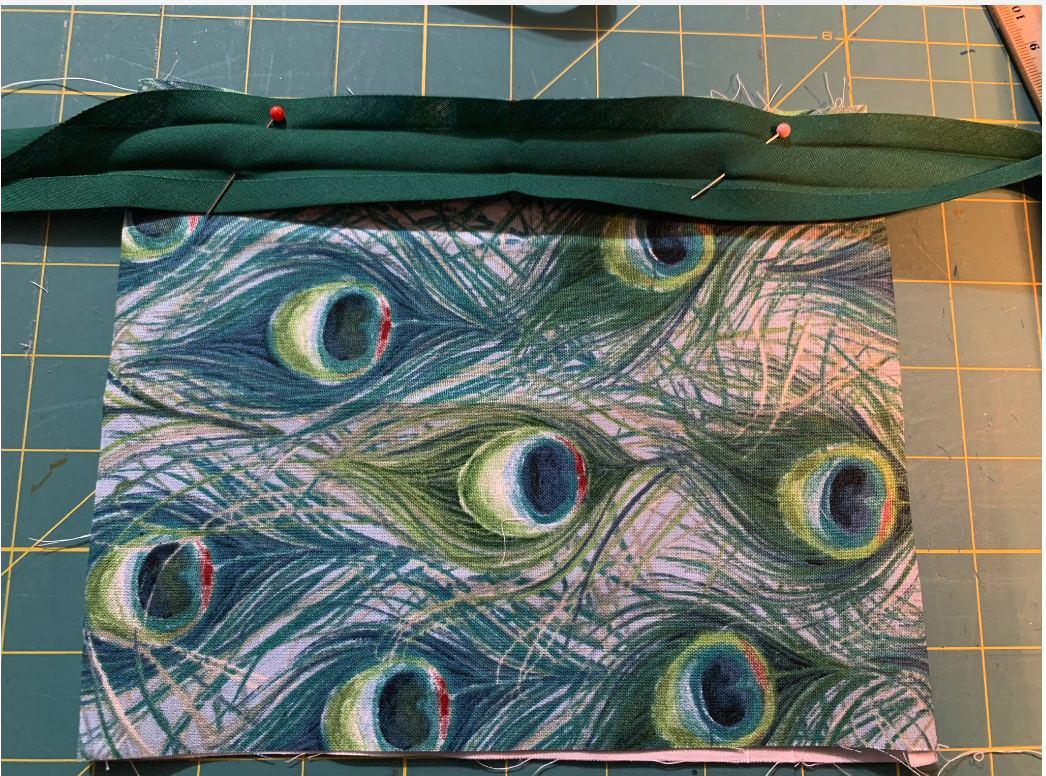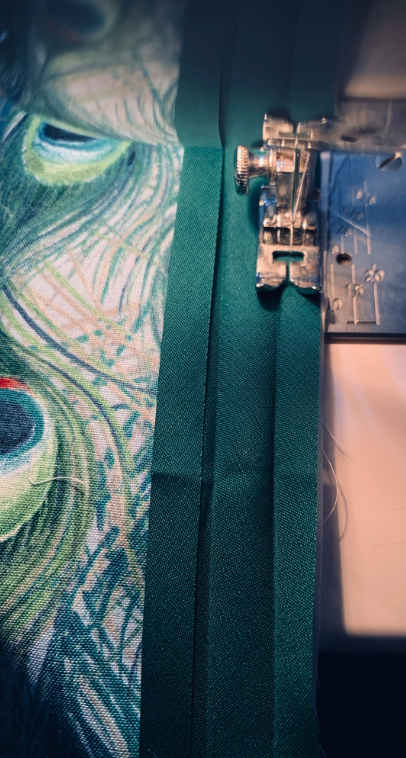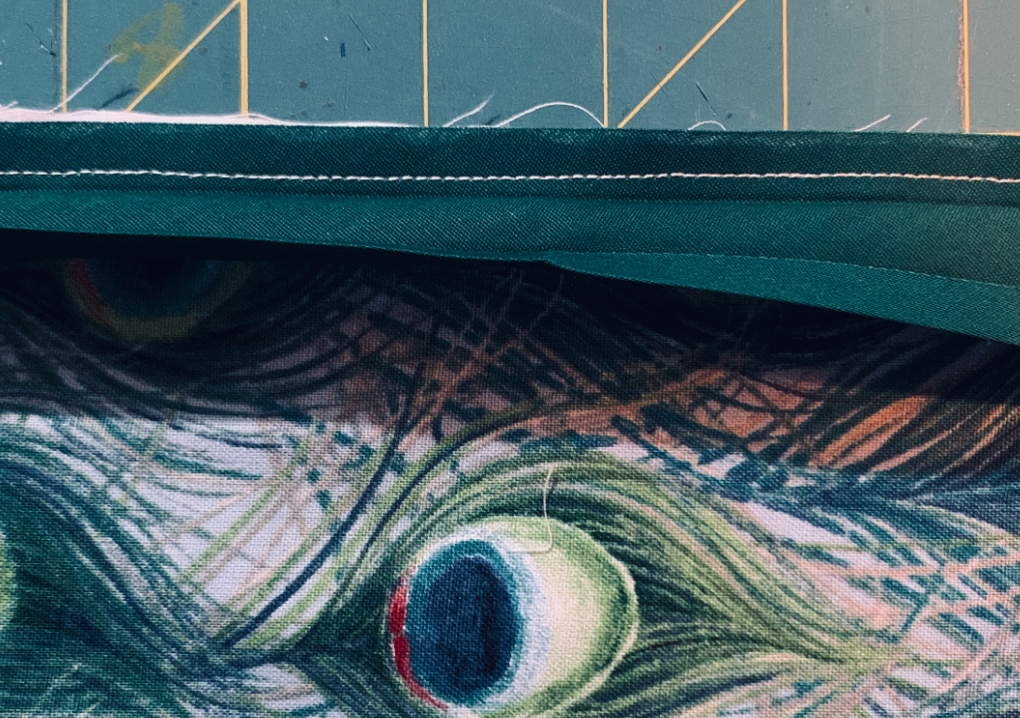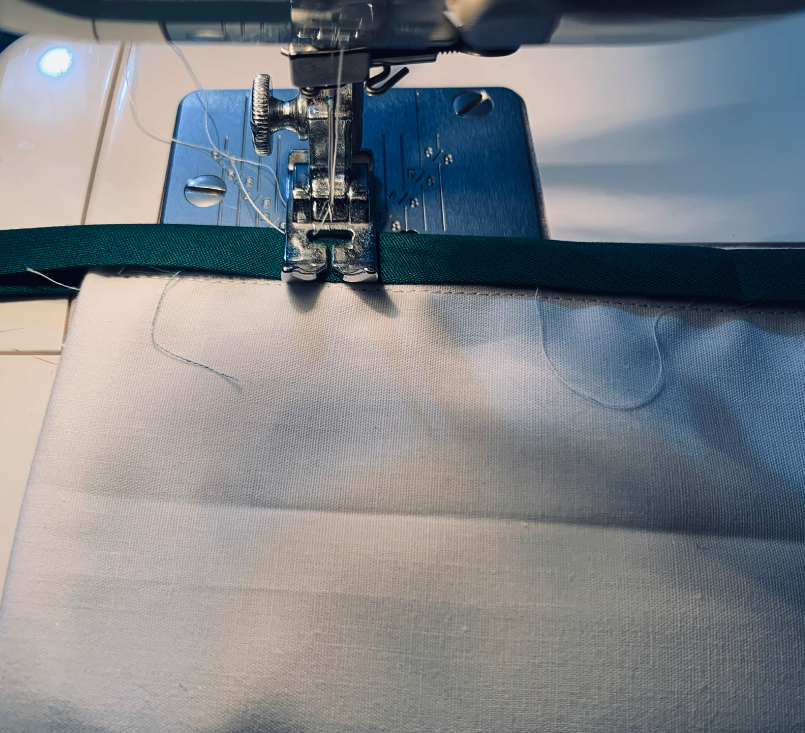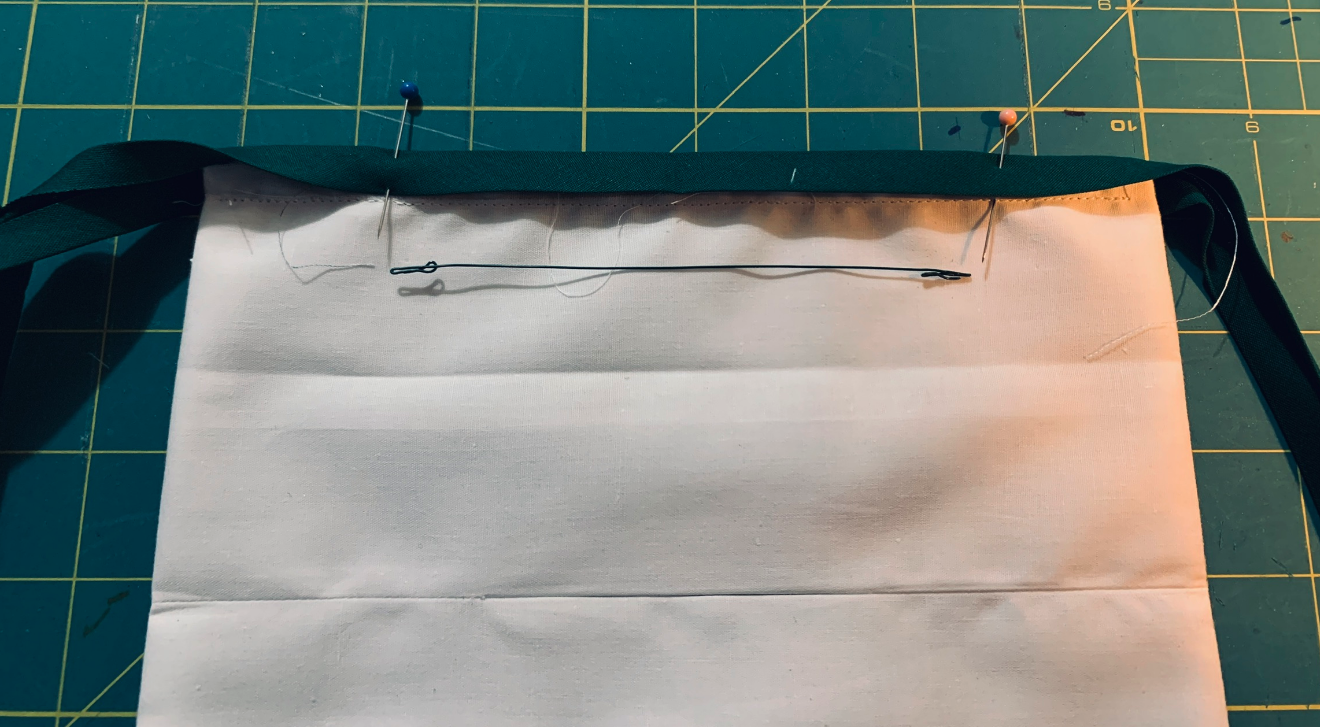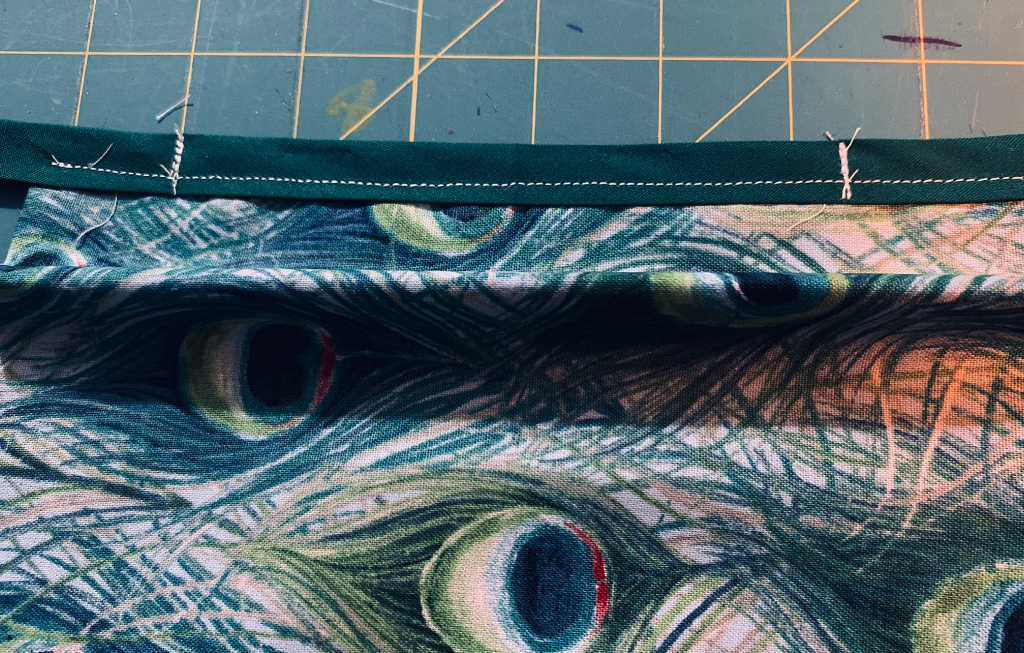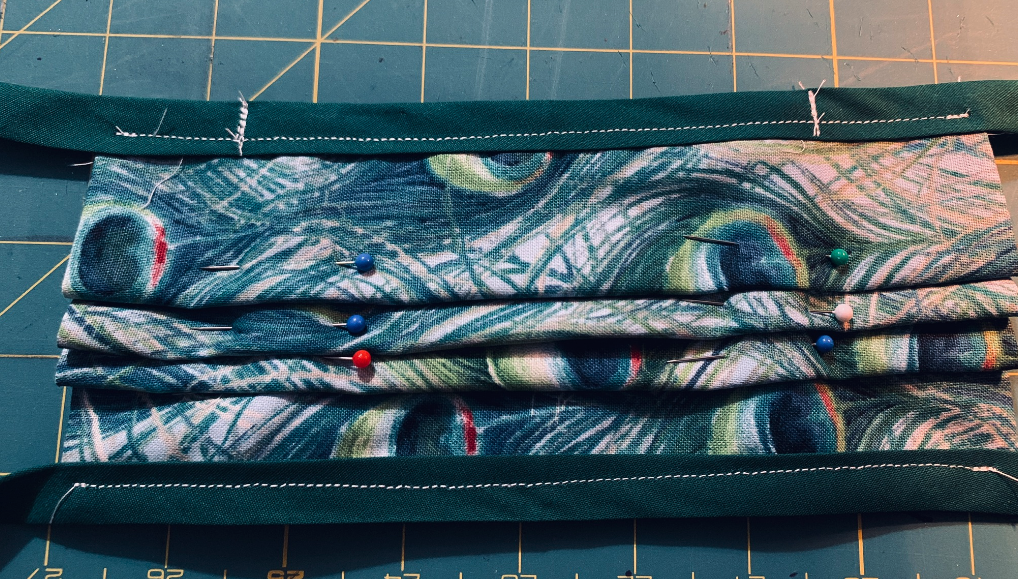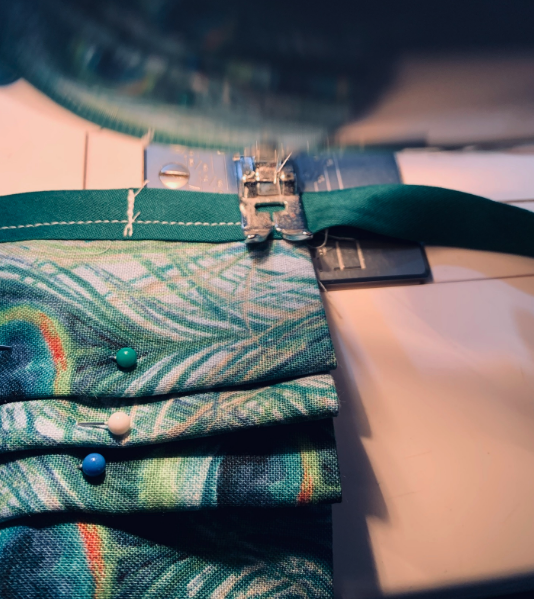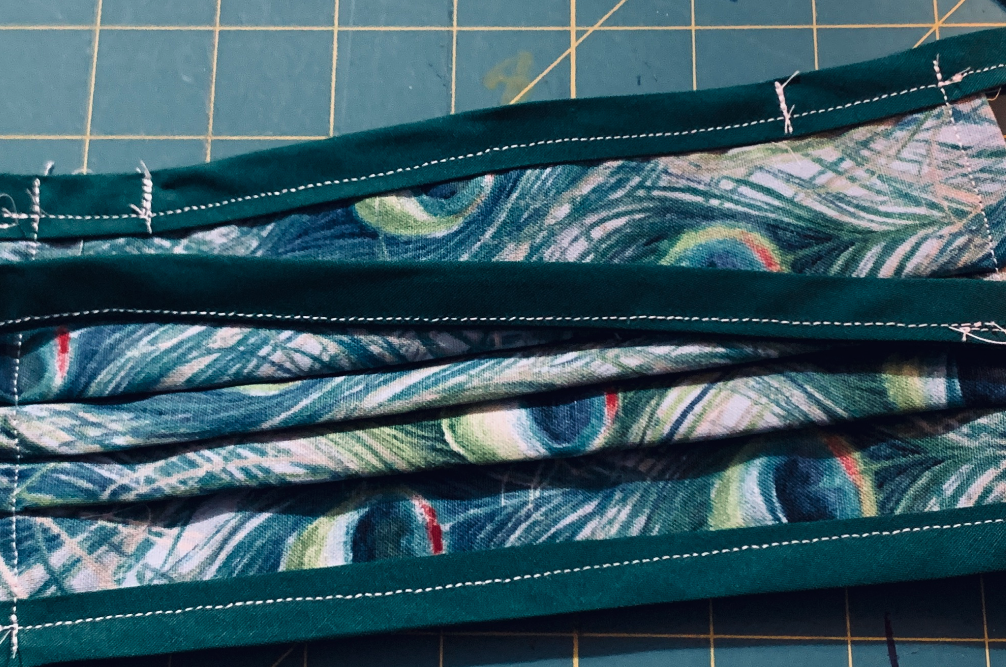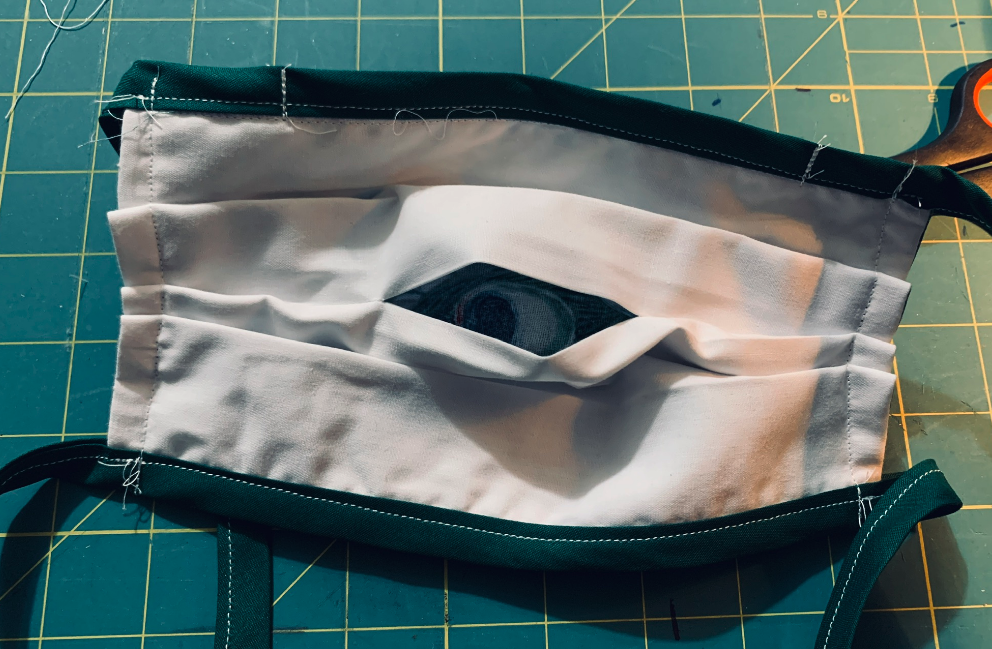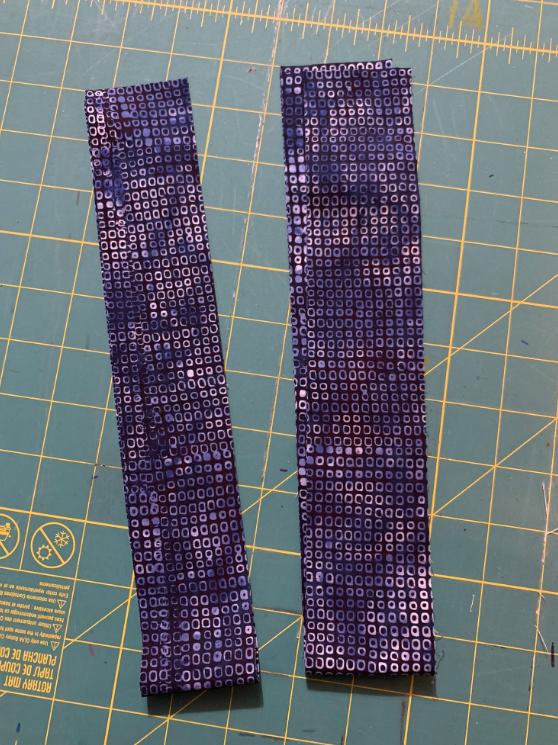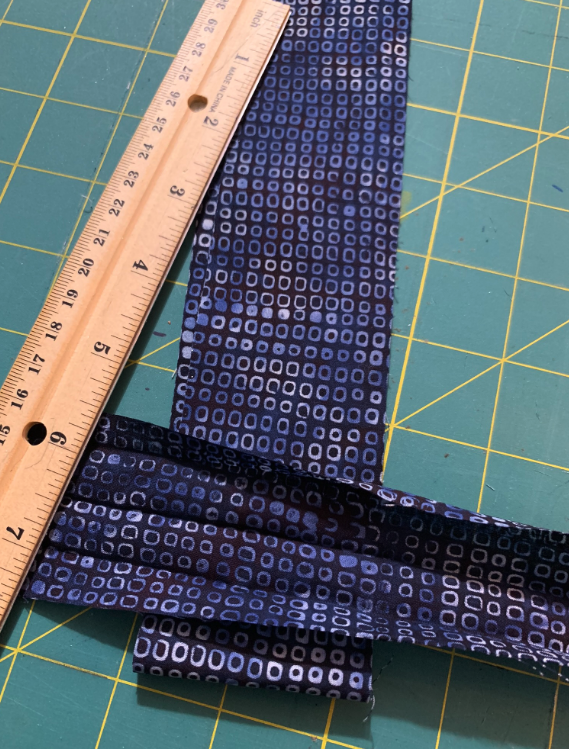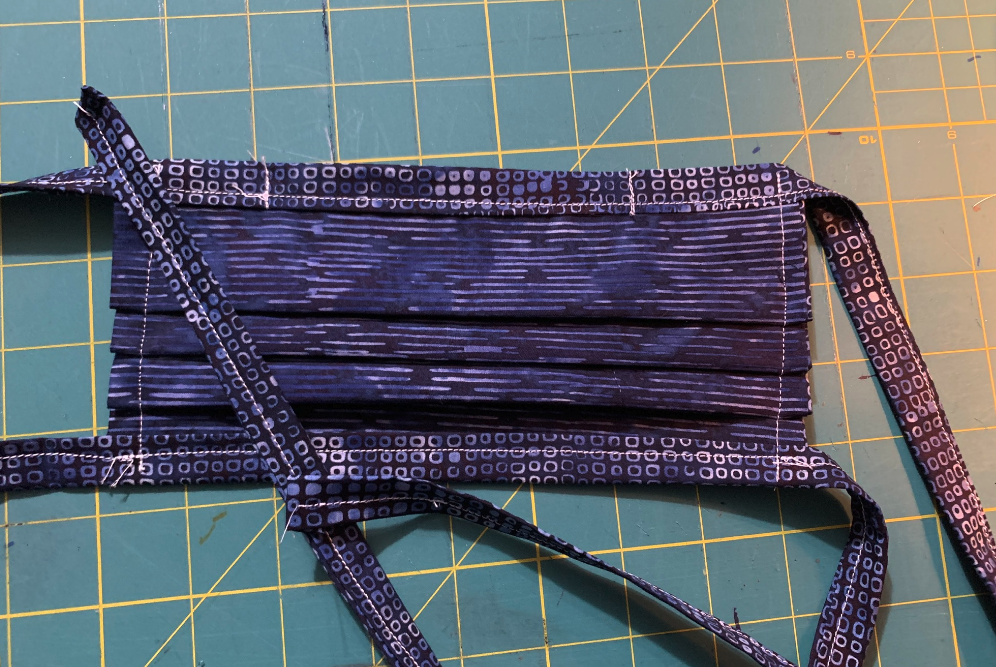In honor of the 150th Anniversary of the completion of the Transcontinental Railroad, on which I worked, I would like to tell the story of how the famous celebration of the driving of the Gold Spike, almost didn’t happen. Historians bicker back and forth about why it almost didn’t happen—some say the weather, some disorganization, or rivalry between sides—but I was there. So to put the record straight, I will tell you a tale nearly erased from the archive of humanity’s furious ordering of nature. I will tell you about a con, a heist that left none the wiser, but nearly derailed the first Overland Express.
It begins on May 6th, 1869…

I love the sound of the clang, or perhaps better said, I used to. Its chief romantic attribute to my ear, is that in one sweeping arc, the whole of the world around me lights up in sudden harmonic brilliance, as every surface chimes. I can “see” for miles on the flat plains and mesas where danger is plenty, but in the canyons and cuts, it’s blessedly numbing. After five years, however, I realize I’ve become deaf to the men beside me. I barely even smell them now, which is a feat, since when I take the time to think about it, I recall that the most washed among them hasn’t even swam in the river for nearly three months. My thoughts have been hammered flat and twisted into this shape, and I find I no longer think about much of anything, anymore. I enter a trance, and the work does itself while I watch.
Our foreman gives a shout. We line up. Out go the rails, onto the ties, down go the rails, in go the spikes, down come the hammers, three strikes each. And on and on, in this monotonous dance that I can now do in my sleep, and have done, several times. Work so long and backbreaking, in conditions so treacherous, that it literally squeezes every last ounce of life out of a man. For me, it’s the stamina required that puts me to the grindstone. I can hurl a man across a room, but ask me to do it all day long, and you’d better let me eat him.
Is there any wonder the Union Pacific has a difficult time keeping mules? I have to eat something when I’m at end-of-tracks and the boys are being civil.
Today, we push hard, perhaps more ferociously than ever before. Yesterday they said the Chinese put down six more miles of track and it was only a week ago that they laid the record-breaking ten in a day. We’ve done nearly that. Perhaps. I reckon so, though there was no reporter there to say it. But there is no way in hell that Union Pacific will lose. Human pride is at risk, and if there is anyone on this earth who knows what that will mean, it is I.
We’ve done at least three today, I’m sure. At least three miles. We will have the station rights easily by Sunday.
There’s a sudden bark of command. Heads turn and all work grinds to a halt. Like the machine that our crew has become, the hammers choke up in mid-swing. Gazes clear of fog and sharpen for the next instruction. A small cloud of ochre Utah soil settles in the air, smelling of salt.
“Conroy, off!”
I fall out of my daydream and back off the ties. I am dusted head to toe, and my ears still hum. A man in a straw hat waves me to follow him. I give Foreman Hardly a questioning look, but he replaces me with a grunt, and I am instantly forgotten.
“General Jack wants a talk.”
Of course he does. I’m never pulled from a work crew unless a Casement brother wants to talk with me. It’s been that way for damn near twenty years, ever since Jack was my foreman on the CCO, and I demonstrated my strength, accuracy, and focus. I surmise it will be that way for precisely the next two days. On the 8th, when that last rail tie is in, that last shiny spike driven, and two coasts entangled in all the pageantry of a self-congratulatory species, I will finally be free of the Casement Crew.
I should feel pleased with the notion of moving on, of finally finding a territory after so many years of moving twixt them, waiting for my cousins to pop out of the ground like centipedes. I am not. The work may be downright dangerous and grueling, but I have always thrived in great constructions. I like to build, because I can remember what it was like before, and though I don’t show precisely what I am, I demonstrate who I am when I have tools in hand and a goal to obtain.
The man takes in my silence and seems surprised. “You kill someone?”
I smile obligingly. It is a bit odd. I had thought him in Echo or over at the hurried excavation of Carmichael’s cut, but those distances are easy to manage with a train engine in one’s pocket.
I’m briskly offloaded near several wagons. A pile of dirt shields us from the wind which is unusually cold for the season. Jack looks like a Cossack in his hat and stiff stance. There is not the slightest trace of humor in his face and his round blue eyes are squinting as they do when he is watching a slow crew recovering from their drinking first thing in the morning.
As soon as he marks me, he shoves a piece of paper to my chest. I glance over the telegram, at once annoyed. “An incident”? A ransom demand isn’t an incident, it’s a crime. The telegram is out of Echo City from General Grenville Dodge, the Chief Engineer himself, so it must indeed be quite serious. When I turn a questioning glare onto Jack, he shakes his head.
“Durant has gotten himself into a bad box.”
I pull a face. When, in the last five years, has that man not been a thorn in anyone’s side? Now he gets himself kidnapped? I’m not supposed to know what I do, but whenever Thomas Durant inspects “his great efforts”, I spend my leisure sitting atop the Palace Cars as they play host to massive quarrels.
“We don’t know how many men Davis has, but they somehow took him from the train. Now they want money they say they’re owed. This close to the ceremony, with track still to be lain? If word got to the newspapers…”
All in a single sigh, my plans for the next few days disintegrate. So much for seeing this grand affair through. So much for my claim to part of history. Before he says it, I know what he is going to ask.
“Boston wants someone to ensure the transaction goes according to Hoyle. Demands go out by telegram. Which…well, you know you always know when there’s a flash. I told Dodge to call the troops, You just have to sit there and report back—an advance scout. Pete…you’re the best man I can put on this.”
It’s a perfect arrangement for him. If Doc Durant has been kidnapped by a mob audacious and brazen enough to hijack a train on its way to one of the most important events in the history of the country, I’m precisely the person to send, but it’s not as if I’ve been obvious about that fact. He knows I steered clear of the war, unlike him, even though he’s seen me scrap in the tent a time or two. All he ought to know of me is that I have a knack for sensing trouble, I can handle myself, I never tire, and I am fearless. But as I stand there looking at him, I realize my most important trait, is that I can’t give interviews.
I cock my head with a wry look.
“Keep an eye on things.” He strokes his great beard. “And you know…if you run afoul of the cantankerous fool who gave the orders, throw a fist at his ivory. I know you can do that.”
My visage is stoic and still. The longer I stare, the more he withers. He is my employer and he’s accustomed to demanding action from me, but this is above and beyond and he knows it. When it was natives scalping our graders, I went willingly. When they derailed our cars and snipped the telegraph lines only I could hear, I was first on the engine, But this is a mob of disgruntled workers wanting pay that is righteously owed them. And if there are more than fifty, I might not return. Even if there are only five, Piedmont is a hundred miles away! The road is clogged with trains coming west for the festivities, not rolling backward, and the only horse I ride is an iron one, something Casement damn well knows.
“In the Lord’s name, I’m merely asking you to be a witness! We have no one out there. All the crews are at the Cut, or here.” He holds his hands out to me as if to lift up my weighty thoughts. “I will give you five dollars for it. You can roll back on the next exchange to Bitter Creek.”
I would have made five dollars already by the time I can get there and back, and by then I will have missed the ceremony in less than two days time. I narrow my eyes.
“Seven dollars, then. And usual pay.”
I run the tip of my tongue over my teeth, kept secret behind habitually pursed lips. A fourth of a month’s pay in a few days, to sit on my haunches in the dirt and watch a man I despise get his spokes kicked in by Mormons? I look up to the the ridge, swarming with workmen. Behind it, the sun is setting in brilliant shades. The wind is picking up and I can feel the whisper of moisture as I contemplate.
The ceremony is once in a lifetime, and for what it will mean, it is once in my existence. I have waited centuries to see such progress, I have pushed myself to breaking for this artery, I have seen good men die and bad men prosper just to what? Miss this?
It’s unthinkable.
“Pete, there are other people in the car. Duff. You like him?”
Not especially. The only people I like out of the whole lot of flannel-mouthed cockroaches are this man and his brother. Then again, I don’t have to like management. I merely have to finish the job.
“Pete. How long have I known you?”
I take a deep breath and consider that in this case, while it has been a long while, it is not the amount of time, so much as the thoroughness of acquaintance that matters. I have known him since before he met the wife he has abandoned for the blistering heat and snow drifts. I have known him since before the birth of his sons. I have turned a blind eye when he aired his paunch after a night in his cups. I have lain awake at night and listened to his private confidences with his brother, reminiscing on their childhood, his time in the war, his disgust for the very man he wants me to go look after. I know him far better than he will ever know me.
I cross my arms.
“Ten dollars, you smock-faced screw. Don’t push me anymore or I’ll take seven over to Hamish and get him to do it.”
Eyes latched to the heavens, I manage something of a pained shrug. I am going to regret this. I am. But the little crow tracks around his eyes have returned and he is shoving me along to the supply tent. I have known him for two decades. If a glorious machine means more than the trust of a man, then civility and society are going to hell on rails.
***
The weather turns ugly before I am even ready to board the engine. Clouds roll and the moon shimmers in a malevolent way whenever it makes an appearance. The smell of metal and petrichor laced with that pungent odor that has been following us since the Red Desert clings to the atmosphere. I have seen some truly spectacular storms since we pushed into Wyoming, and this has all the hallmarks of a good one. Without fail, the rain drops out of the sky in a torrent as soon as we push loose.
The town of Ogden has already changed more than the Mormons might like. When we first arrived here, it was a gathering of ranches with a street of a few low buildings for supplies. We descended on it like a Biblical plague foretold by their profit, and the poor country folk are still going through the pain and suffering of acclimating to his investments. Even in the monsoon, I can see a few more log buildings, a station house going up, footings for rail yard hotels—it’ll be a bustling dust hole by the end of the year, overflowing with travelers who might like the notion of having a few wives, but aren’t so keen on giving up their tongue oil.
I won’t spend much time worrying over the fate of the place. I want out of Utah as fast as the railroad will get me gone.
As soon as we crossed the border into the territory, the Mormons surrounded us and demanded a share. Ties are always a problem—can’t lay track if we’ve got no wood to put them on, and out on the desert flats, there aren’t sticks for miles. Reed, chief of operations and supplies, would have shipped them from Chicago, Missouri—hell, he would rather have asked Satan himself than deal with Brigham Young, but Durant struck his bargain. Ties were always a problem, and so even though the arrangement was probably a bad one, no one said no. Soon, there we were, having to listen to sermonizing while we just wanted to drink our juice and gamble away our dollar.
My eyes have been shined to trickery since my earliest days. I know a liar and a cheat when I meet them, and there’s not a single way anyone can talk about Joseph Smith and his supposed revelation without me squinting at them until I can’t see straight—which turns out to be the best way to look at them. Brigham Young may wander up and down the line like he owns it, but I shan’t be kowtowing to him any time soon. None of the old hand road workers will, and it bothers the dickens out of the posse that follows him around like he’s the pope.
My weatherall is an instant seal skin as I lean out of the engine. A poor telegrapher is huddled beside the track, arm raised as if to hand off a flag, though he drips. A crack of lightning flashes on his somber face. The driver draws back and the engine crawls to a halt.
“Fucken ‘ell,” he mutters.
The drowned rat hops aboard and shakes out his hat. “Can’t roll back. Just got word. Devil’s Gate’s awash.”
In annoyance, but not an ounce of disbelief, I rock back on my heels and drop the coal shovel. That bridge looks like it was built by a giant, particularly shoddy spider. Not the same drunken arachnid who crafted the dizzying Dale Creek trestle, but perhaps her idiot cousin. And if anything is going to further muck up my plans, it would be that rickety stretch of scaffold. This means I’ve no easy way to Piedmont and I’m only at the fifty mile mark. Then again, it also means that the festivities will be missing half the participants. With a break in the line that severe, there will be no way it can go as planned. They’ll have to postpone, surely.
The engineer makes a series of disgruntled faces. “They want me to wait or go to end?”
“Back. No point in making a run. General Jack says the trestle crew will take it once the rain stops.”
He looks at me. I shake my head.
“Well mate, looks like you’re unlucky.”
“Where you headed?” The telegrapher stares out over the crackling wasteland. “Look at all this. Looks like it will wash the track off the world. You can’t go anywhere in this.”
With a deep breath, I grab my portmantle. Kidnappers don’t care about weather, as I hear it, but at least the company can now tell the papers that it was the bridge that made things difficult. These men might see the storm as a curse, but if they knew what was going on, they’d be relieved.
The telegrapher watches me with growing surprise. “You’re going out in it? Really? You know it turns to a mud suck, eh?”
The engineer rolls his head on his shoulders. “Stubborn.”
I shrug as I hop down.
Instantly a wall of water collides with me as if I’ve jumped into a waterfall. It’s cold as ice, but I’m not much bothered by that. Within only a few minutes of walking along the tracks, I have washed down my mind. This is the first bath I’ve had in months and by god or devil, I will enjoy it. This is a monstrous night, so it’s the monster who prevails, not the man.
I move at a trot and as soon as I’m out of sight of the town, I strip my worn boots and shove them into my bag. The hat joins them. I choke down an ancient chunk of dried human flesh and break for the hills ahead.
Using the rail as a path is easy enough, but the ties are uneven, barely planed log halves that jut from the dirt at angles that make tripping a hazard. Wind shoves me sideways any time I try to move with any grace. In a flat space that drops away from the track like a shallow bowl, the level grade has formed a dam and pools of water lap at either side, milky with clay. As the thunder slams the heavens again and again, my way is lit with vivid white arcs. Serviceberry bushes and scrub lay flat. The rain hangs in the air like curtains of glass beads that flicker in each strike of white.
Then, as suddenly as it all began, it sweeps aside as if God decided to take a peek at all the nonsense. Just as I reach Wilhelmina Pass and cross the Thousand Mile Tree, all falls silent. I stop briefly, leaning against the lone, scrabbly pine. I can already hear the sounds of humans echoing off the smooth surfaces of Devil’s Slide. In the gorge, the spindle remains of the bridge are a sight. I knew it was in a sorry state from melting snow tracking down to the riverbed, but the rain had only made things worse. One entire segment of rigging has been broken apart and lies scattered in the newly formed rapids. On the other side of the gap sits an idle engine, lanterns ablaze. A few UP workers have exited the train and are standing about, looking on the scene with mingled impatience and dismay. They don’t know the half of it.
They can return to their car and relax out of the damp, I have to find some way to cross this river and keep moving. I know this land well. While we were putting track down, I wandered up and down this canyon. I can see Weber River has swollen its banks and swallowed the valley to my right. There is going to be no easier way than the Gate.
It’s a damn good thing I’m indestructible.
Looping the strap of my pack double over my torso, I take a few cautious steps out onto the trusses. I can instantly feel the creak and sway of the structure in the high wind, but it’s by no means the most dangerous thing on which I’ve balanced. If I move swiftly, I can dash over this and take the leap easily like a cat going somewhere to happen. The real trouble is, I will have witnesses.
An engine barely surviving an attack, a terrific storm, a bridge with a dark name, a lone figure? It has all the makings of a horrifying ghost story, and frankly, the crew could likely use the excitement. It isn’t as if they’ll ever recognize me. And if they do, they’ll never say a thing, assuming they can hold in their piss. One thing I’ve learned in the last fifty years is, if one has to be a ghost tale, one should do it right. In that way, the true devil avoids recognition by distracting man with details.
As I reach the midpoint, a spectacular bolt lights up every last crevasse of Weber Canyon as bright as day. The engineer, standing just at the other side of bridge, espies me. In the black that settles heavily over us, his frantic waves of warning would be invisible to most men, but I watch them with something like amusement. He turns, racing to the engine to fetch a lamp he can use to signal me that the bridge is out. In those brief moments, I kick ties into a run. One stringer reaches straight into the air of the divide. I bound right out onto it and spring off. Wood, soaked as a sponge, shrieks with grinding fibers as the force of my jump presses downward. I have but an instant to second-guess this action, but my arc is good. I come down directly into the open angle of common braces, nested as if sitting in the Devil’s own crooked elbow. With only a few slips along the damaged planks, I claw my way back up to the end floor beam and nearly collide with the engineer as he skids to the precipice.
He lets out a yelp of astonishment as I stand up to full height. For a breath only, we are locked in a stare. His mouth hangs open and he shudders. This is a good joke—materializing suddenly before him when a few seconds before, I was on the other side of a dangerous chasm—but I haven’t the time to play at fairy tales.
“You the engine that was stopped out of Piedmont?”
In the glare of the lamp, my teeth must be striking. Suddenly, he thinks better of blocking my way. Skittering aside, he trips on the slippery ties. I catch his arm and haul him back upright. Instantly, he pulls free and stands with his limbs drawn in.
“Y…yes!”
“It was only the one car, correct?”
He nods, looking downright waxy in the yellow light.
I unravel the strap of my pack. “Bunk for the night. There’ll be no crossing for a few days.”
His gaze slides down the length of me like my watershed, settling on my bare and hideous feet.
“What the—”
“Devil?” I cannot help but grin. “You ever read Ezekiel, my friend?”
For the first, he registers disbelief over outright mortal fear. “You one of those Mormons?”
I snort. “Not hardly. Just making an argument.”
He flinches as I move swiftly, but follows beside me toward the train. “What argument?”
“How can anyone read about the seraphim and get an impression of fluffy wings and beauteous faces? Angels are downright ghastly, if you ask me.”
He contemplates my somewhat remarkable appearance in silence, trotting behind me as I walk the full length of the train. The sky growls impatiently, and I know that it’s about to open up once more.
“Durant’s car?”
He points to the last coupling in front of the caboose.
“Just before the parlor?” I wonder aloud.
“No cargo. He insisted.”
I look back at him in astonishment. “What did the ox say?”
The man shrugs, but his face is still a mask of uncertainty. He has yet to ask who I am or how I know about any of this. “It’s Doc. What’s any conductor gonna say?”
“No?”
He shakes his head.
It’s rare to see a palace car capped off by the caboose and even stranger for Durant to request the back of the train.
“How’d it happen?”
“There was a pile of wood on the track. Hundreds of men. Shot right at me. Then they swarmed, and in less than a few winks, a man jumped on board and told me to get.”
“What did they do with his car?”
“Put it in the hole and then reattached the caboose.”
My frown is contagious. “That fast?”
“Knew what they were doing, I suppose. We dropped word at Evanston.”
“Where were you when they stopped you?”
“Byrne’s.”
This is madness. The kidnappers knew when to expect Durant’s train, when even I had no idea Durant was anywhere nearby. Within a quick horse ride from Fort Bridger, but not a soul detects an armed mob of hundreds? This doesn’t have the ring of a labor dispute. This is something else entirely.
I don’t have time for mysteries.
In a flare of temper, I let out a grunt and turn back to the tracks. I am thirty feet past the caboose before the engineer realizes I am leaving, and that he should stop following me.
“Where you going?”
I halt and look back on him menacingly. “To witness man’s supreme lunacy.”
His chin twitches side to side with utter confusion as he swings the lantern around. “So you’re a reporter?”
I suck in a hiss.
“A lawman?” He shouts at my back as I turn to go. When I do not reply, he clucks his tongue and stutters. “Well…hell man…an angel then.”
With that serendipitous timing that so graciously accompanies much of my life, the sky tears apart at just that instant, and a curtain of precipitation divides us.
***
I walk through the night in the downpour, but even with a few shortcuts to turn curves into straightaways, I have only covered about half the distance by the time dawn breaks. I stop and make short work of my next meal. May the seventh is going to be miserable, I can tell.
I well and truly hope one of these bastards tries to shoot me. I could use a good row. I’ve learned the limits of my ability to keep hold of my mind, and every day I press my face to them and try to see beyond. This turns almost every moment I am not on the line, into a kind of mathematical obsession. Will I break now? How much longer? And then there is the constant hunger, a deep and painful ache at the back of my mind. I lose it on the work line, but regain it upon stepping off. Out in this desolate terrain, there’s no business to keep me from thinking about it. I am never really lonely, I daresay, but when I am driven to keep my own company without regard for others, terrible things tend to happen.
I walk all through the day, at a much slower pace now that I know the whole celebration is likely to be a ridiculously halfhearted affair, if it happens at all. I catch myself chuckling when I contemplate what would happen if no one waited for Durant to show up.
Showers come and go—nothing so terrible as that first downpour, but enough to drive anyone who might have been out in the countryside, indoors. The air is clean of dirt for once and blooms with green. The alkali of Wyoming is as silken as corn flour and sticks to everything. It burns human skin and stains me a coppery gold. When I worked this ground only months ago, I looked like a statuette almost daily, and for the first time, developed a cough. Any rain then, was a blessing for the body, but a curse for the rail. A thick quagmire forms around the base of every structure and the sucking pressure changes make quick work of railroad ties. Flash floods are a threat. Repair crews will have to backtrack for weeks afterward, shoring up the line and making it fit for all the travel it’s bound to get.
About mid-day, I am passed by another train. It carries several of the sort of work crew cars we use to haul and house our men. These must be Eicholtz’s boys coming up from Bitter Creek to have a go at the bridge. Every man, through every window, seems like they are half asleep or damn near dead, but good on them. At least they’re not walking into an ambush to look after a bastard.
I wish them luck with a shake of my head.
At Evanston, I send a telegram to Casement down at end-of-tracks and inform him that I’m about to hit my destination. To my surprise, word slings back almost immediately that Casement is not at Promontory Ridge, but Devil’s Slide, seeing to the bridge. If so, then he will know I’ve made it by now.
Trouble is, what to do?
If I’m honest with myself, I cannot decide. I am fundamentally a lazy creature and the walking, while continuous, has been rather relaxing compared to the usual daily grind of working the line. This is something of a holiday. I have half a mind to do as little as possibly. I’m only a witness, after all.
I run off the track and out into the countryside on the south side of Byrne’s ranch. A low ridge gives me a fine vantage point on the water tower and mercantile.
Durant’s Pullman car isn’t difficult to locate. Almost exactly where the engineer said it would be, it sits on a side track. Looking at the situation from a distance, it seems rather strange to me. If I were to turn bandit and unlawfully board a train with the intent to cause harm, I’d do it directly between cities, and nowhere near a fort. But when I think about the tracks and how they’re arranged, this strange situation makes a kind of sense. This is the only side track for miles. They not only had to know when to expect Doc’s train, they had to find the opportune location to use, and they found it just before Piedmont, where our old supply cars used to sit as the main track squeaked with work crews.
Around the track, back toward the coal kilns and tiny outcropping of wooden buildings, some newer, smaller tents have appeared—a makeshift camp like a tinier Hell on Wheels. Purgatory on Wheels, perhaps. Durant might think so, if they’re being unkind. The telegraph shed appears to have the most men around it, which makes a fair bit of sense if they’re going to flash their demands to Boston or General Dodge.
There again is another queer fact. How did they know to telegraph Echo City? So far as I know, none of the men I work with—as cootie-ridden and filthy as they are—have any idea as to where the chief engineer is at any one time. So how did Davis’ men know to look for him in Echo?
I get close enough to listen to all of it and secure my pack behind some rocks. Lying in the sylvan afternoon sun as it stretches like a dull blanket, I stare up at the gray, my face damp with drizzle and stuck with mud. The ground is moist, and in arid regions, that means it is suddenly alive with activity. I have to push my mind into that earth, feel for the things within it, make peace with them first—or in this case, remind them I exist and that we have known each other for a stretch.
When I have it in my mind’s eye and can imagine the lay of it, I can shut it out completely, and work toward finding Durant among the human chaos.
At first, I grasp for the most obvious sounds of shouting, or machinery, or clinking glass, and then divide it. An indistinct sound is suddenly teased forward, and I can make sense of it. Conversations with many participants are easily located, but to mince them into words is sometimes tedious. The longer I listen, the better I can do with any group. It’s especially easy to do, if I already know what a man sounds like. Unfortunately, I know Doc’s voice all too well.
He’s a gregarious man, given to soliloquy, to carrying a day with charisma, to boffin, to general exaggeration of the slick sort. I’m very much perturbed by him, but it’s a woolly sensation without specific cause, creating a slight vibration in the back of my shoulders and oozing down into my heels like swamp slime. When he greets workers, it’s as a fabulous show, and when he orders them around, it’s like as if counting his money has afflicted him with a forgetfulness that the war is over and that certain inalienable rights have been confirmed for all men. Because I am as invasive as Old Scratch, I also know things I shouldn’t about how everyone else feels regarding him, which does nothing to improve my sentiments. I know he is a thief, a liar, and while he may drum up funding for the road, I have serious questions regarding how honestly he goes about that.
Waiting for him to sing out amidst the chorus of masculine voices is no enjoyable experience. The rain keeps on until every inch of me is splattered with sticky mud. The wind picks up again. A few animals noises near to me, momentarily divide my focus, but for the most part, I lie as if I’ve been painting my nose for the last three days, breathing slowly if at all, frowning a bit, my scalp itching with the movement of my wriggling hairs.
I’ve never been spotted doing this, but surmise that if I were to be happened upon by humans, they’d think me a corpse, so still do I go and so generally corpse-like is my skin sack. Time ceases to matter. I know that it has passed only by the feeling of the ground, the resonance of the earth and all its teaming masses, inching through it, crawling over it, burrowing within it. When at last Durant speaks, it’s to mumble something to himself. Instantly I am with him, though I realize as I follow, that I’d rather not be.
In fact, I again wish I’d never agreed to do any of this at all.
I open my eyes. The sky is patchy gray, but glowing incandescently with saturated sunlight. The stars came and went wrapped up in cottony clouds. I have passed the entire night in stillness, but have not a single ounce of rest for it.
A distinctive tickle across my face and neck alerts me that I’ve struck a one-sided accord with a tribe of harvester ants, moving over me on their path to higher ground. I should have expected this. It seems to me that bugs enjoy my company when I am calm, though they think better of it when I awaken. They’ve turned my pack and its contents into a way station and seem focused on a tiny cloth sack of nuts. Upon my first movements, the hive reacts in a series of stunned stings. I detach from Durant for a few minutes, to shake the intruders out of my clothes and punish them for the transgression. I’ve gotten good at dealing with them, such that it only takes a few well placed thoughts to convince them to leave me alone. Something about my general aspect puts them off their plans to turn me into a cozy home. This doesn’t detract from the aggravation of the interaction, however.
I send a few flying with a good puff through my nose. A buzzing and sting in my ears alerts me that there are tiny inhabitants looking for a way out by trying to dig inward. I’m chow for the few moments before I can cup enough water from the ground to drown them completely. Sopping wet though I am, I find myself praying for a downpour just to rinse out all my crevasses of crawling contamination.
Ten dollars.
I get ten dollars for this. When I return to Promontory, I am going to eat Jack Casement, and before I do, I am going to lecture him on the fact that I’ve known him to the very end of his miserable, pestilent life. And after I do, I’m going to track down his brother Dan and eat him. And those are the people I like. Once finished with them, I’m going to find the inventor of the railroad and I am going to dig up his corpse and gnaw on it.
I leave the pack of insects where it is. There’s nothing in it I care about very much. I gave up possessions when I left New York. Everything I need is either on my person or in a bank vault in Ohio.
At the camp of merry men, they mill about in their early morning habits, but notice the curious lack of guards patrolling against incursion by either white soldiers or Ute natives. If I wanted to, I could probably get quite close before anyone noticed. Perhaps even pick off a straggler from the herd and improve my disposition.
Durant, however, is remarkably chipper. He readies himself with a cup of tea and chats with a bewildered and exhausted Duff as if nothing is amiss. When his captors come to drag him back to the telegraph office, he makes a show of being offended, but as soon as he’s out of the Pullman, strikes up an amiable conversation. I can understand wanting one’s kidnappers to be accommodating, but this is odd.
For one, Davis seems far too relaxed, as yet another fully loaded passenger train rolls through and is waved on. In an empty coal car, soldiers are crowded, all smiles and shouts. The miscreant makes not the slightest sound of caring, even though the train’s occupants are likely to find out as soon as they hit the clot at Devil’s Slide, that there’s a difficulty tangled up behind it too. Without a note of worry to his voice, Davis dictates several telegrams for various higher-ups in the UP and before long, has gotten into a game of Euchre with Durant, something Mormons aren’t normally supposed to do, by my reckoning.
My scowl becomes a permanent fixture on my face.
I’ll be damned if that bastard isn’t laughing in captivity. This is not the nervous, somewhat uncertain chuckle of a desperate inmate. This is a full, hearty, joyful laugh. A dark notion begins to form in my mind. I give it plenty of comfortable space and let it settle there as I ponder. Finally, as the dusk begins to creep upon us, I hear what I’ve been waiting for.
The telegraph lines sing with life and then stop. One of the operators in the shack dictates a message indicating that the UP cannot furnish the full amount of two-hundred-fifty-thousand, but is willing to send eighty now, and the rest after the celebration has finally commenced on May the tenth.
To my increasing chagrin, Durant chuckles. “So they did put it off, then? Well, look here, gentlemen! It seems I am able to have your excellent company and still make the festivities!”
“You’ll pardon me for saying it, but that is not the agreed upon amount,” someone replies.
“It’s a third.”
“A third ain’t all.”
Durant makes a noise of dismissal. I can just see his smug grin as he summons his usual boisterous tone. “Come now. I know Ames. Send another. Tell them you’ve got a man from the Deseret here to write a story and that if he doesn’t pay you at least half, you’ll tell the papers how you’ve been wronged at once. It’ll be in San Francisco before they can telegraph about the spike. After the road begins running passengers, the rest of your money is sure to follow. We never thought we we’d get it all.”
This snaps me out of my usual trance. Perched on the rock with my arms crossed, I can feel every inch of skin as it is caressed by the gentle rain and glare at the town with an increasing sense of disgust.
I have no idea what sort of larceny I am witnessing, but sure as shit, this ain’t no hostage situation. This is some sort of set-up, and I’d bet my left arm that Durant is governing it.
What a god damed bastard!
Fifty miles through mud and muck, running low on supplies that are now the claim of a horde of buzzing creepers, made the agent of men’s folly rather than a great builder of industrial wonders! Omaha to Promontory, through deserts and barren plains, fighting natives and the elements, sitting atop a railcar with the tingling paranoia of the prospect of encounter a member of my own kind! Saloon brawls, the stink of humanity, the constant wear of being forced to listen to them bicker. One thousand miles of work…for nothing. All to sit here and conscience this scoundrel continue to cheat others with the newest technology.
I’d sooner kill everyone and leave a ghost town in my wake. I’ve done it before! I could easily do it again with a little stealth. Take the first tent silently, sneak to another. It’s a warren down there, which means none of them can keep each other in sight. I’d get in some damn fine eating.
Of course, those less-civilized activities of mine become fodder for further warring with the Indians. Settlers are always on the alert, and these men are especially trigger happy. Brigham Young has hordes of worshippers scouring the countryside to cleanse the desert of natives. If I leave a pile of bodies, there will be an instant and unjust reply.
I cannot bear to see any more of that. I came to this land expecting to help build a place that let everyone follow their own stars, but for a century, it’s been nothing but an exercise in doubling down on petty differences, social inequity, and abject villainy. I am raw with a sense of futility. I need to get away from this type of life, or I will most certainly fall back into old patterns.
That should not happen. Progress, always!
No, there is nothing ethical to be done. No Angel’s flight, no Devil’s dance. I have to sit here in the sludge and witness.
But…I could sneak into the camp and see if there’s anything good to steal. A new pack or hat, perhaps? Stealing from a thief is noble, as the saddle bums and boomers tell me. Then again, they aren’t known for an honest day’s work and I can’t figure as they’d know anything about stealing from a thief who is themself in the act of stealing from a thief. Morality is like blood—it may be thick when it’s in the family, but once a rascal cuts you, it thins out a bit.
Why not? Union Pacific pays me to lay track, not be a saint. And even if they did pay me for my angels, they’re compensating Durant twenty-fold to be an indecent malefactor while they feed me lumps of stale bread and rancid Irish stew.
Indeed. Sounds like capitalism to me.
***
Early afternoon on the ninth, the negotiations seem to have come to a close. After what sounds to my ear like a tentative offer of half now and half immediately after the commencement of railroad services, management suddenly finds the full amount. This, of course, pleases the Mormon marauders immensely and they accept the offer at once.
I don’t know much about the practices of how the Union Pacific obtains funding. There were times all work had to stop, even when we seemed to have supplies, rumor had it because certain people needed paying. I’ve overheard several arguments between higher-ups visiting the end-of-tracks over how to shore up costs, but that experience isn’t enough to inform me. I can only presume that some wealthy parties have decided to put up the money in exchange for bonds or some sort of security. Once the ceremony is had, without certain important parties missing or any kind of scandal, the road can begin churning out the funds to replace the investment, if indeed that is the arrangement.
I don’t much care. I pick up bits and pieces of the conversation as I creep between tents and cabins, eating anything that’s sitting out and liberating all the valuables I can find in this wretched stop-over. I’ve picked up a few trinkets, a new bag, some money stored in a tin, some gold and silver in a sack beneath a stone. I’ve only encountered a few humans of the large group, and they don’t seem to be overly concerned with me.
For a pack of robbers, they’re either exceptionally naive, or they don’t expect any trouble and are overconfident. Difficult to divide the two, really.
A bull of a wood-fueled engine is allowed to come fetch the Pullman. I make my way out of town and southwest toward the tracks, watching as Durant is escorted to his comfortable car. He tugs on his lapels and smiles, takes hold of the rail to climb aboard, and then gives his kidnapper a conspiratorial bow.
“Well, gentlemen, we’re off.”
I hear no answer.
“Tell Mr. Young that I’d be happy to correspond and I’m glad we could come to a satisfactory conclusion.”
I’ve had enough of this farce. The celebration awaits. If I’m to make it back to Promontory, my only choice is to hitch onto the engine. I don’t recognize the driver and Davis’ men seem to have swarmed around the locomotive like the ants. I’m going to have to run ahead, but not so far that it has time to build up speed. Not a terribly difficult calculation and one I’ve made countless times with the work trains.
Running my fastest, as they line up and connect the Pullman, I get about a mile and a half up the rails before the driver lets her go. In the sound of the pistons and wheels, I lose any human words that might be spoken, and instead turn my attention to not ending up cut in half. As the train approaches, the natural urge is to run alongside and try to catch hold, but I have a different method. I wait for it to get almost upon me, then switch directions completely, racing directly for the cowcatcher. Just before our paths intersect, I give a bit of a perpendicular jump, and usually make a fairly ungraceful, but effective landing. This time, I end up on my backside in the tender, which is rather an uncomfortable experience. I sit up and pop a few bones back into place with a grunt. The fireman stares up at me open-mouthed, tiny hatchet in hand, and really I cannot blame him. I have dropped out of the sky with a hard fall, am the same color as the dirt, and am still not wearing my boots.
“What the hell?” He mouths as I wriggle off the heap and onto my feet beside him. The hatchet comes up, but he isn’t a fighting man, and when I put my hands in the air and give a tight-lipped smile, he demurs.
The driver glances back briefly, catches sight of me, and damn near stops the train dead, but I already have my paperwork out of my pocket—a signed note from the boss, vouching for my friendliness. I wave it a bit, until the fireman snatches it from me and passes it off with a crab walk. Both men are tense from the stress of a potentially violent encounter with kidnappers, and are visibly relieved to find I have Casement’s seal of approval.
I’m waved into a tiny space at the mouth of the tender and lean against the cab wall. The engineer is pushing it, obviously wanting to get the hell out of danger and to Promontory as fast as possible. I’ve been out of communication for a bit, and it seems to me that it would be impossible to get Devil’s Gate reopened in so short a time.
We begin to slow, coming into Echo City. While I put on my boots and stand around generally useless, train cars are hurriedly shuffled. Boxes that have been stacked up and waiting for transport across the divide are moved back into position. The Durant Special is coupled back together with several additions and honored guests.
From my lookout atop the tender, I catch sight of a party of men in black suits and overcoats as they climb aboard Durant’s palace car. One of them wears a papakha hat of black fur.
I cannot help but grin in surprise. If Jack Casement is on this side of the Gate, then the bridge has been mended somehow, a feat I cannot imagine of anyone but Eicholtz’s team. Three days to repair that thing seems miraculous and I wonder if it’s a temporary fix. It would have to be, because most of that time was probably spent sourcing the materials to even attempt to fix the damn thing.
I wonder if Jack wanted my report before or after we reach the summit, but decide that regardless of what would make him comfortable, I plan to be completely unavailable for any sort of labor once the festivities begin. I plan to present my resignation, as it were. Besides, Durant shouldn’t go to that great historical occasion like peacock in all his egotistical finery. He deserves to regret, and if there’s one thing I’m good at, it’s making men rue the day.
Slipping off the tender, I give the newly ensconced conductor my note and board a passenger car. It’s not the fancy sort, and I am so covered in muck and debris that it’s obvious I am not on board for a scenic tour. No point in hiding it then, I reckon. While they laugh and carry on in a generally festive manner, despite their delay in Echo, I meander through the cars. Some are furnished with food and drink, and when I take up a space beside a spread, people are so put off by my appearance, that they move out of my way with apprehension.
Coming up to Weber Canyon, the whole train gutters to a halt. Grinning like a fool, I know why we’ve halted and poke my head out to see what came of the bridge. The crew has hopped off and is standing at the brink of the divide, conferring with what I presume to be Eisholtz’ engineers. It isn’t long before the Conductor moves down the train with some news that, to me, is the absolute cream atop this obnoxious situation and proof that if there is a god in this New Zion, he enjoys watching me struggle—the bridge may be whole again, but there is no way this engine can safely cross. It’s simply too heavy. A strange and frankly foolish plan has therefore been concocted, and is being communicated with steely calm: the train is once again going to be dismantled, and each car positioned before the engine, then nudged across the gap to hopefully coast to safety. Once this is done, another engine will backtrack from Ogden to fetch the train and take it on to Promontory.
Hearing this, I let out an inelegant snort and immediately offboard. I may have built this thing, but there’s no way in hell I’m going to do that, when I have absolutely no real blockades to my safe advancement. Passengers cast dubious looks my way out the windows, when they see me shaking my head in mirth, but not a one of them follows my example. I’m not surprised. This age of Industry has built an unfounded trust in most men of the technology they wield, when any fool knows that whether or not one knows how to use a sword, the end is still sharp and ought to be treated with caution.
Seems like today, I might also get to witness a spectacular derailment.
As one of the few Union Pacific linemen in the vicinity—and one with a very dark and wicked sense of humor—I take it upon myself to trot over to the ox and get my marching orders. If men need to be helped to the hereafter, I might as well oblige them.
After the locomotive has backed the train to the branching in the tracks, it is decoupled and pulls onto the sidetrack. I step into place alongside the first passenger car, and with the old heave-to, we send the it coasting along the rails into place. The engine backs out onto the main track and nudges the cowcatcher against the rear of the car.
The driver is pale as driven snow and it doesn’t help that Eicholtz and his men are crossing themselves while they look on helplessly. This maneuver will take a deft hand, as the train must pick up enough momentum to send the car sailing across, but still stop before hitting the bridge. It’s going to have to burn hot and pray to whatever saints protect brakemen.
The engine chugs back into life with a whistle and starts off the line like a runner. There’s a loud clank as it collides with the car and carries on after it. A few seconds later, they throw the brakes and creep to a halt, while the box carries on, drifting perilously out onto the newly hoisted truss like its about to ride a tightrope in full wind. I expect it to shimmy out, cause the whole structure to vibrate loose, stutter to a halt and then plummet into the gorge, but to my immense surprise, the damn thing just keeps on rolling, gliding like a rock over ice until it makes it to the other side with no harm done. Men hop out as soon as land appears and the car inches to a halt. Putting their backs into it, they trot the car up the track even farther to give the rest of the train plenty of room.
“I’ll be god damned,” I mutter to myself.
A man to my left lets out a whistle. “This is Devil’s Gate, friend. Seems right to me.”
With a shake of my head, we get to work lining up another car. It’s a hairy process, but it works, and as I watch each successive group of passengers inch across the bridge, an idea begins to form. I like it so well, I put it into effect without a second thought.
I aim to give Doc a piece of my mind and would like a captive audience.
When Durant’s Pullman is lined up, I don’t fall back, but instead clap hold of the railing and step on. The thing is a marvel of design. Never in my life have I been aboard so fine a train car. The interior is a lined in burnished wood, curving into archways and up onto the ceiling. A chandelier hangs every few feet along the clerestory. Plush velvet, button-tufted armchairs are positioned in a conversational fashion, and just at a door to the main sleeping quarters, a sideboard is built into alcoves to either side. Bookshelves rise above, curtains with tassel trim filter the light, and even the floor is carpeted in splendor. The whole place smells of mineral oil, pipe tobacco, and Irish coffee. It’s a fine way for a monster to get about, I reckon.
I have interrupted Durant with my sudden entrance. He is part way through accounting for all his miseries at the hands of the Mormons when I traipse in and his audience of dignitaries finds me momentarily more interesting. General Dodge is seated stiffly, one of his wrists propped on a small round table, while his other hand rests on his knee. He is so stern and upright, he looks to be made out of angry stone. Jack leans against the wall, arms crossed as usual. He acknowledges me with the smallest of chin digs, but his face is already set in a stoic mask.
“General, this is the man I told you about.”
Dodge gives me a once over, but I’ve no interest in entertaining luminaries. I pass them all by and find a bottle of spirits on the bar at Casement’s elbow. Before anyone can say a thing, I’ve poured a glass of rye and downed it. There’s a general kerfuffle of disbelief, which would scarce be audible to human ears, but to me sounds like a game of faro at a den of ill repute. Durant stammers out his plea for a pardon. I ignore him and pour another.
Nothing on this earth should ever distract a body from a good whisky, and any man who attempts to interfere in this engagement is most definitely a terrible person. That is a simple fact of existence.
Casement’s mouth is tugging at the corner. “Doc’s been regaling us with their audacities. Have anything to add?”
“What’s this?” Durant’s expression is one of confusion and concern as I glance over my shoulder at him.
“I sent a man back down the line, to make sure you all weren’t murdered in some kind of double-cross, Figured he’d get a good perspective on things for the company, if it came to it.”
Durant scowls with misplaced indignation. “Well, then, let’s hear it.”
I hold out my hand to Jack, plum-colored claws worn to ragged stumps by labor. He stares at my chafing fingers for only an instant before drawing a heavy coin from his pocket. He plants the ten dollar gold eagle in my palm.
There’s a delicate tinkling of crystal and a jolt as the engine bumps us. I curl my fingers around the coin. It’s heavy and perfect for the occasion, though I should have liked a hand full of silver.
“Yes, I think I’d like to hear what he has to say, myself,” Dodge remarks.
Jack cocks his head just as our car is liberated from the chugging locomotive and sent beyond the brink. “Afraid Conroy doesn’t talk.”
Here we are, trapped in limbo and relying on a prayer. God’s missionaries are highwaymen, the Devil builds bridges better than any pontifex, and progress is made by monsters. It’s as good a moment as any to move on to my next life.
I turn abruptly, and packing force just shy of breaking bone, I put that coin against Durant’s jaw with a Judas fist, sending him hurtling through the palace to crash into a table. Before anyone can react, the whole thing tips up, displacing beverages and a clock. Doc crumples onto the ground. Poor Duff jumps up as if to crawl the walls. Everything is chaos as Doc’s cronies try to stand against the dangerously swaying motion of the train car.
Only General Dodge and Jack Casement are composed. They exchange a knowing look.
The car clacks onto solid ground and is shoved up the track by workmen and able passengers. Shaking his head and holding his face, Durant finally manages to find his knees. Eyes glazed, he stares up at me in utter befuddlement and spits blood.
I pocket the coin and tip my hat to the Chief Engineer of the Union Pacific. The passengers circumspectly watch me finish my drink and make my way to the exit.
“Well, Jack,” Dodge says with a cough, “for a man who doesn’t talk, he says a great deal.”
Casement chuckles. “That’s the Lord’s honest truth, sir.”
***
A note from history
So that is the tale of how this lowly railroad monster punched the Vice President of the Union Pacific in the face, on the eve of the most auspicious day of his life, in front of a Civil War hero who met Abraham Lincoln.
Historians may quibble over the finer details of those few days and what intrigue was actually afoot, but having been there, I have my own ideas and they’re not much altered by the revelations of ensuing decades or by any research done since then. Thomas “Doc” Durant staged his own kidnapping, in collusion with Brigham Young, leader of the Mormon Church, in order to blackmail the Union Pacific into honoring a contract he knew it never wanted in the first place.
This stuns you, possibly. Or you’ve been paying attention, and this surprises you not in the least. Most probably, the few Mormon readers I have are now throwing their devices or books across the room.
But Simon, you say, how do you know Doc wasn’t just playing a part for his captors? Making them believe he was on their side? Perhaps you have heard of him or have seen him depicted as a brilliant business mogul who made possible, the impossible dream, albeit with some minor mischief.
Ah, so much varnish has gone over that man, you’d think we all worshiped the ground he walked on. Much the opposite.
After serving a stint as a surgeon, and managing his father’s wheat trading company, Durant apparently realized that transportation and infrastructure could use some improvement. Durant was an arrogant and greedy man, however, and his initial interest would evolve into a series of swindles, all serving to line his pockets.
When one of his early rail companies was sued by steam boat captains for building a bridge that caused a massive boat collision, he buggered off and formed a new company. The Union Pacific was officially contracted by the government with Lincoln’s Railroad Act of ’62. Despite this charter and an exceptional amount of money changing hands, nothing seemed to happen in the first few years, because Durant was a bit busy.
During the Civil War, Durant used his connections and corporate interests to smuggle goods—most notably slave cotton—out of the South, when there were prohibitions against such things. Granted, he had help, namely General Grenville Dodge, but he was the mastermind. War presents many opportunities for enterprising people and distracts all authority.
While the nation was in turmoil, Durant founded another company called Credít Mobilier of America, named for the famous French bank, renowned as a secure and well-managed institution, to fool potential investors into thinking this company was a branch of the bank. Credít Mobilier had the exact same board members as Union Pacific, and miraculously…won most of the construction contracts for the UP side of the railroad.
That was sarcasm.
Credít Mobilier would send Union Pacific an invoice for work and materials that was sometimes double the actual costs, and the UP with a shrug of innocence (again, owned by the same men), would forward that invoice to the government, including a slight increase for their own handling and expenses. The government paid what seemed like a legitimate bill, Union Pacific “paid” Credít Mobilier and then the board members presiding over both companies would pocket the excesses. In this way, these men—Durant foremost among them—collected some twenty million dollars in excesses. As a bonus, Credít Mobilier of America appeared to be a very profitable company, even though almost no railroad had actually been built. It attracted massive investments, again pocketed. Discounted company stock was also given as bribes to government officials as high-ranking as the President, Vice President, and Speaker of the House.
But all this misconduct wasn’t known by the public (including me) until it came out during the 1872 election. I only knew about the constant bickering over which route to use, which engineer’s word should be trusted, whether or not we would get paid, and nine times out of ten, any nonsense that ensued tied directly back to Durant’s meddling. Imagine how completely unsurprised I was, when I read about Credít Mobilier.
Dodge and Casement, however, were most certainly aware of Durant’s character, as was Oliver Ames, the then-president of Union Pacific. And likely, it was their concerns over his financial sleight-of-hand that led them to pay me. You see, half way through construction, certain, more honest board members had ousted Durant from his previous position and had agreed to instead allow him to help raise additional funding. His situation was a tenuous one, but did that stop Durant? No. Doc was so much of a pestilence, he stuck his thumb into every pie, just to be a nuisance and alienated everyone who had originally called him friend, including Dodge and Casement, who had both been hired by Doc in the first place.
As we approached Utah from the east and the Central Pacific approached from the west, the Mormon Moses contacted Union Pacific. Brigham Young already owned stock in the company, and had been one of the first investors and contributors to the rail, using his stockpile of personal wealth obtained by tithing his parishioners. He was keen, as the founder of Salt Lake City, to have the road pass through his capitol, securing its economic success and his own legacy. When the final route was set and skirted Salt Lake by miles, Young was livid. He insisted that the Union Pacific contract his labor force in order to complete the tracks, and proposed an outlandish sum that Ames and the board members turned down instantly. Durant took the deal behind their backs, in order to prevent Young from allying with Central Pacific. He did this in order to win the race, and thus secure land rights and government funding, knowing Union Pacific could not renege on the bargain in good faith. If they had tried, Young would have surely made their lives difficult by sabotaging supply lines or slowing down labor, while also working to speed the Central Pacific on to the finish line.
For a few months of cutting ties and grading—which were some of the lowest paying jobs on the line—Young proposed a quarter of a million dollars. Even laying track, that many men could only be expected to earn about forty-thousand at best. The UP again let it be known to Durant that they had no intention of paying that debt, but instead wanted to bargain it down. Consequently, the debt went unpaid until Young was at Durant’s throat, demanding he abide by the terms of his agreement. And so to alleviate his own personal financial responsibilities, Doc set up his own kidnapping to force the company to honor the arrangement.
You want further proof?
There was one conspicuous absence from the Golden Spike ceremony. Brigham Young, who, as said before, was a shareholder, campaigned to have Salt Lake City on the main line, championed the cause, and wrote communications to the entire Mormon population recommending their help to furnish supplies and labor…was not there. At the last minute, mere days before the kidnapping, Young decided he urgently needed to go on a tour of the Southern missions of Utah. Now this was no small undertaking. At this time, the settlers there were in almost constant conflict with the native Ute and summer was fast approaching. So rather than wait a few days to attend the celebration of his achievement, colored a divine enterprise by his own newspaper, Brigham Young decided to dash off in the heat to a war zone to say “hello”? I think it more probable that he wanted to be absent from the seat of power and incommunicado, should someone have wanted to reach out to him and request he keep his people in line. He would also have something of an alibi, should the Union Pacific suspect his involvement.
A cast of interesting folks and not a one of them ever suffered for it, really.
Durant, like most entrepreneurs in 1873 (including my then-employer William Sharon), lost millions in a severe stock market implosion. But of course, he had millions to lose in the first place, and so wasn’t destitute. He dropped dead while in the process of rebuilding his fortune, but at a fairly common age. Brother Brigham went on to die of peritonitis due to a ruptured appendix in 1877, and was mourned wholesomely by his fifty-five wives. There are statues to him and he’s routinely equated with saints, the reality notwithstanding. Union Pacific nearly failed countless times, but survived, and as I said, while the Credit Mobilier scandal implicated a dozen elected officials (including the brother of the President of Union Pacific, Congressman Oakes Ames) it didn’t leave any lasting stain. Garfield, heavily maligned in the investigation, later obtained the Presidency despite the difficulty.
My, how things…don’t ever change, eh?
Dodge and the Casement Brothers went on to build more railroads, including another transcontinental line in a southerly route, and refurbishing the tracks laid in the Confederate states, to make them compatible with the rest of the country.
And what of me?
Well, I took that eagle to Hell on Wheels. Bought a new vest and hat. Before you wonder, I’m in the photographs from that day, but I’m not sure if you’ll find me.
If you’ve been reading along with these Snacks, you know that I ended up in Virginia City, Nevada, but you might want to know how that happened. While we had been working alongside the Chinese crews of the Central Pacific, I struck up a friendship with a man named Hong. After the railroad companies disbanded our teams and sent us packing, we received a call for skilled railroad labor in Washoe, where William Sharon wanted to build the Virginia & Truckee railroad. It promised at least another year or two’s labor, so when the Chinese left Utah, I went along, never realizing that Jack had sent a recommendation along ahead of me, despite my spectacular departure from his employ.
When I got to Virginia, I waltzed into a supervisory job, looking after a Chinese work crew, and because of the several other tactfully silent errands I had run for the Union Pacific, Sharon decided to hire me on as his personal minion—paying almost five times what I made on the railroad plus the added benefits of being within hearing distance of the richest men in the world as they manipulated the stock markets.
And so you see, by punching Thomas Durant in the face and alerting the company to the facts, I had “made my bones” and set myself on the path that ultimately secured both my wealth and my current home. I’d like to say you ought not punch your boss in the face, but there are times…it pays off.
The same history that leaves this incident as a mere footnote, also records that throughout the next day’s festivities, Durant complained of a splitting headache. I say, good. He also had a swollen face, a black eye, and a severe cut to the inside of his cheek that kept him from enjoying his champagne, but I can settle for mention of a headache—some proof that he was given some karmic realignment, minor though it may have been. Casement hired me to put my fist to the teeth of the man who gave the orders.
Durant deserved it.
He also deserved the embarrassing articles that were published on the tenth, after I put my arm around a reporter from the Salt Lake City Deseret and whispered in his ear like the immortal nudnik that I am. The paper painted Durant as a tyrannical agent of the devil, intent on stealing from worthy men. It also turned his docility during the heist against him, mocking him for being unable to stop the encounter by any “masculine” means, but following through on his promises. It was a shame from which Durant’s reputation never fully recovered, and a comeuppance most thoroughly earned.
It certainly explains why he and Leland Stanford from the Central Pacific (whose own engine, ironically and somewhat humorously, had been nearly derailed during the trip in, forcing him to also use his backup, the Jupiter, for the famous photo) had such an argument over which of the two dishonest industrialists would get to put the Golden Spike into the laurel tie. When they both missed, being men unaccustomed to manual labor, it was Jack Casement who took the hammer and joined two coasts…exactly one-hundred-fifty years ago, upon the date of this publication.
***
Irish Bison Stew, a recipe
Irish stew is a traditional dish that originated long ago, but saw something of a revival and innovation after the introduction of the potato to Europe. Most of the Union Pacific labor force was composed of displaced or emigrated Irishmen, and so the stew was a common focal point of meals on our best days. The supply chain was long, however, and frequently cut off by weather or attack. In addition, while onions and potatoes could be stockpiled in sacks and transported long distances, beef was often difficult to come by. So there were times we had to be innovative, if we wanted a feast.
And so I give you a meal slung about once a month at least, during the spring and summer.
Ingredients:
• Half a dozen medium onions
• Half a dozen good sized carrots
• A dozen small red potatoes
• About 3 pounds of bison meat (If you can’t find bison or aren’t keen to try it, you can use beef or lamb)
• A few bones (In this case you can either find some bones intended for stewing or baking, or you can buy two quarts of beef bone broth)
• A couple glasses of bourbon, scotch, or Irish whisky (You can also use red wine, but that isn’t how we did it)
• A pint of beer
• Herbs of your choice (typically, this was negligible in the camp, but sometimes the good cooks carried their own. If I were you, I’d use sage, thyme, rosemary, and bay. I’d also do some garlic, though we didn’t often have that at that time.)
• Salt and pepper
• A few spoonfuls of lard or oil
• Butter (you need this with Bison, as it is quite lean)
Instructions:
1. Chop the onions and carrots. Cut the potatoes into large cubes. The meat should also be cubed in smallish chunks, about an inch and a half cubed. Sprinkle them with salt and pepper and set them aside.
2. Heat the lard or oil in the pot. Toss the onion into it until they begin to change color and the smell permeates the air.
3. Add the herbs and give it a toss or two.
4. Add in the meat and stir for a few minutes until it is lightly seared.
5. Toss in all the vegetables, butter, and liquid. If you’re using the bones, add them, if using broth, add it. If doing both, you’re in for one rich stew, and good on you.
6. Stew for at least an hour, better if two. Simmer on lower heat or over an open fire, stirring occasionally. Remove the bones before serving, careful to scrap any remaining marrow into the pot.
Serve with crusty bread and a pint of beer.




















